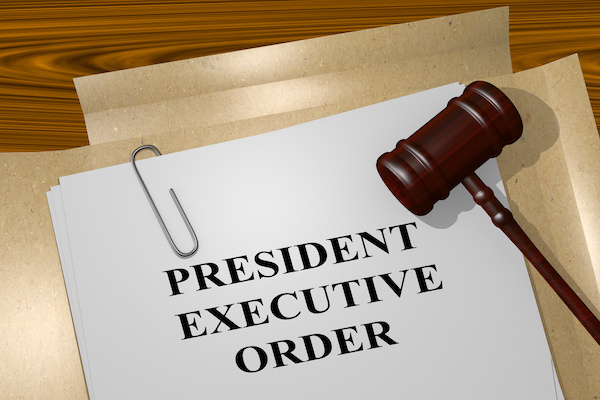What To Do With An Executive Order On Relief

Last week, when it appeared negotiations between Democrats and Republicans were breaking down, the President issued an Executive Order and three memoranda with supposed relief for beleaguered individuals and families in the middle of what is likely the most serious financial and health care crisis of our time. Several questions come to mind. Is the action legal? Is it workable? If it did go into effect how would it affect long term programs including Social Security and Medicare? Would it accomplish what it sets out to do? What are the alternatives? Where is Congress?
Especially because of the potential effect on Social Security and Medicare, two areas of practice near to my heart, these actions could not go unnoticed but another question comes to mind. How can people plan long term when they cannot be sure of their income or housing tomorrow and decisions change from day to day? Planning is an important part of what our office does.
First, this Executive Order. Is it legal?
- Tax and spend power under the United States Constitution belongs to the Congress, not the President. What Courts would do with this could not be said exactly but the issue itself could be mooted if Congress works out a deal. On the other hand, if the idea that tax policy can be passed by the President by executive order without the Congress is supported it would be an immense extension of presidential power.
Next. Briefly summarized, what does it say?
- For unemployment benefits the $600 weekly federal supplement which ended July 31 would, according to the President, be replaced with a $400 supplement with a catch. $100 of the $400 would need to be paid by the State in which the individual is collecting benefits. Since States are themselves in distress and there is no action to assist them to fill the need (the Democrats’ proposal would provided assistance to state and local governments but not proposals from the President or the Republican congressional proposal) that is a problem. Also, the source of funds for the $300 from the Federal Government would come from the FEMA Disaster Relief Fund used for relief in hurricanes, earthquakes and similar natural disasters. It is estimated to last about five weeks or basically through November and states would need to retool their programs to accommodate this change which could make it take longer to get checks to those who need them.
- Would the action have a payroll tax “holiday” and would it be “permanent”? The payroll tax holiday idea pushed by the President has been seriously opposed both by Republicans and Democrats. Considering how difficult it is to get them to agree at this juncture it says something that (with the exception of Mitch McConnell who came out later to support everything said by the President) they do not like this idea and why. First, payroll taxes are used to pay for Social Security and Medicare. It is true that in 2011 during the Obama administration with the approval of Congress a temporary payroll tax “holiday” passed. However, looking at the overall today, the larger problem is for those who are unemployed, either temporarily or permanently because their employers are no longer around. President Trump also stated that, if reelected he would make the holiday permanent. That is a problem since it would mean potential permanent loss of income from the payroll system to pay Social Security and Medicare. This was later walked back by members of the administration saying only the payback of the deferred taxes during the time of the holiday would be permanent. Note the order does not indicate the taxes do not need to be paid only that they would be deferred, that is put off until a later date when payment would be needed from the taxpayer.
- Eviction relief, student loans. While the President implied that the current eviction filing moratorium would be extended, the actual memorandum only indicates that federal agencies should do what they can to provide help and offers nothing specific on this. Payments on student loans and interest on them would continue to be forborn which is a good thing.
Stay tuned!
About the Author Janet Colliton
Esquire, Colliton Law Associates, P.C. Janet Colliton has practiced law for over 38 years, 37 of them in Chester County, Pennsylvania, a suburb of Philadelphia. Her practice, Colliton Law Associates, PC, is limited to elder law, Medicaid, including advice, applications and appeals, and other benefits planning including Veterans benefits, life care and special needs planning, guardianships, retirement, and estate planning and administration.
